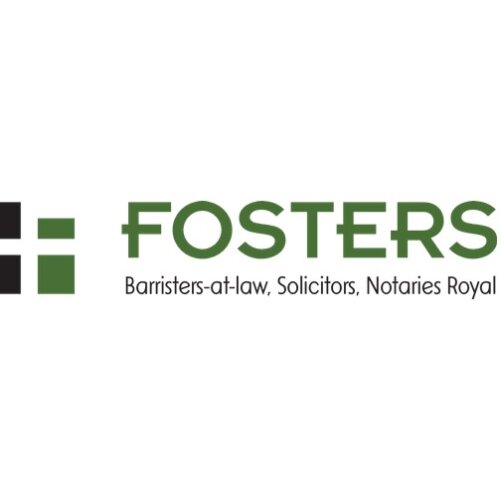Best Tax Increment Financing Lawyers in Castries
Share your needs with us, get contacted by law firms.
Free. Takes 2 min.
List of the best lawyers in Castries, Saint Lucia
About Tax Increment Financing Law in Castries, Saint Lucia
Tax Increment Financing, commonly referred to as TIF, is a public financing method that is used to subsidize infrastructure, community improvement projects, or other development costs in Castries, Saint Lucia. It allows local governments to borrow against the future rise in property tax revenues resulting from an increase in property values. TIF aims to stimulate economic development in underdeveloped or underutilized districts by making them more attractive for investment without raising taxes directly. In Castries, this can be particularly vital as the city looks to bolster its economic infrastructure while catering to both the local population and tourism.
Why You May Need a Lawyer
Engaging with Tax Increment Financing in Castries can involve complex legal mechanisms and significant financial commitments. Here are some situations where seeking legal advice can be crucial:
- If you are a developer or investor looking to initiate or participate in a TIF-funded project.
- If you reside in an area that has been identified as a potential TIF district and are concerned about the possible impact on your property taxes or value.
- Ensuring compliance with all regulatory requirements and local statutes.
- Negotiating the terms of TIF agreements and understanding financial and legal obligations involved.
- Resolving disputes or misunderstandings around TIF policies or their implementation.
Local Laws Overview
The legal framework for Tax Increment Financing in Castries, Saint Lucia, revolves around the management and allocation of incremental property taxes. Key aspects of these local laws include:
- Establishing TIF districts: Local governments must designate specific areas that qualify for TIF, focusing on underdeveloped or blighted areas in need of renovation.
- Growth projections: Accurate calculations of future property value increases are critical for determining the scale and feasibility of TIF projects.
- Funding allocation: Laws regulate how funds generated through TIF are distributed for public and private development projects.
- Monitoring and Reporting: Regular assessment and reporting are required to ensure the transparency and accountability of TIF-funded activities.
- Taxation Impacts: Regulations dictate how property tax levies might be adjusted or affected following the establishment of a TIF district.
Frequently Asked Questions
What is the primary goal of TIF in Castries?
The main objective is to stimulate economic development and urban revitalization in areas that are economically stagnant or where investment is unlikely to occur without public intervention.
Who can initiate a TIF project?
TIF projects can be initiated by local government entities, private developers, or partnerships between the public and private sectors.
How are property taxes affected by TIF?
During the TIF period, the existing tax base is frozen at its current rate, and any increases in tax revenue resulting from rising property values are used to fund development projects within the TIF district.
How long does a TIF district last?
The duration of a TIF district can vary, often set between 15 to 30 years, or until the funding objectives are met.
Can residents voice concerns or objections to TIF proposals?
Yes, the establishment of TIF districts typically involves public hearings where community members can express their support or opposition to the proposed plans.
Are there risks associated with TIF?
Yes, there are potential risks including the possibility of failing to meet projected growth and tax revenue targets, which can lead to financial shortfalls.
How do TIF projects affect local infrastructure?
TIF projects are often designed to improve infrastructure such as roads, utilities, and public facilities, to accommodate and attract further investment.
Can TIF help in affordable housing projects?
TIF can be used to support the development of affordable housing, providing a financial mechanism to make such projects feasible and attractive for developers.
What compliance requirements exist for TIF projects?
Projects must comply with local zoning laws, environmental regulations, and legal contract terms set by the governing bodies.
Is it possible for a TIF district to be dissolved prematurely?
Yes, if the objectives are achieved early or if there are legal issues or community objections, a TIF district can be dissolved before the full term is completed.
Additional Resources
For more information or assistance with Tax Increment Financing in Castries, consider these resources:
- The Ministry of Finance, Economic Growth, Job Creation, External Affairs and the Public Service: They provide insights and regulatory guidelines relevant to TIF.
- Local government authorities in Castries who manage urban planning and development initiatives.
- St. Lucia Credit Unions or local financial advisors who may offer guidance on financial implications and risk management.
- Legal firms specializing in property and financial law in Saint Lucia.
Next Steps
If you believe you need legal assistance regarding Tax Increment Financing in Castries, consider the following steps:
- Conduct thorough research on potential TIF districts and projects that may affect you.
- Consult with a legal expert who has extensive experience with TIF laws and regulations in Saint Lucia.
- Attend public hearings or informational meetings related to TIF proposals in your area.
- Explore various TIF-related programs and financial instruments offered by local or national government bodies.
- Keep abreast of any changes in legislation or policy frameworks affecting TIF districts through reliable local news sources or governmental announcements.
Lawzana helps you find the best lawyers and law firms in Castries through a curated and pre-screened list of qualified legal professionals. Our platform offers rankings and detailed profiles of attorneys and law firms, allowing you to compare based on practice areas, including Tax Increment Financing, experience, and client feedback.
Each profile includes a description of the firm's areas of practice, client reviews, team members and partners, year of establishment, spoken languages, office locations, contact information, social media presence, and any published articles or resources. Most firms on our platform speak English and are experienced in both local and international legal matters.
Get a quote from top-rated law firms in Castries, Saint Lucia — quickly, securely, and without unnecessary hassle.
Disclaimer:
The information provided on this page is for general informational purposes only and does not constitute legal advice. While we strive to ensure the accuracy and relevance of the content, legal information may change over time, and interpretations of the law can vary. You should always consult with a qualified legal professional for advice specific to your situation.
We disclaim all liability for actions taken or not taken based on the content of this page. If you believe any information is incorrect or outdated, please contact us, and we will review and update it where appropriate.










